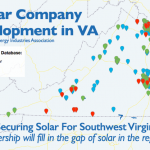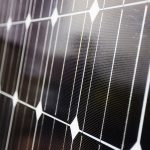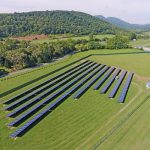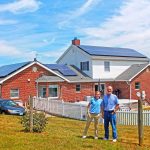
TVA’s decision to convert coal-fired plants to fracked gas will lead to enormous environmental consequences — while providing fewer jobs than renewable energy.

TVA’s decision to convert coal-fired plants to fracked gas will lead to enormous environmental consequences — while providing fewer jobs than renewable energy.

CONTACT: Cat McCue, Appalachian Voices, cat@appvoices.org, 434-293-6373 Erik Curren, Secure Futures, erik@securefutures.solar, 540-466-6128 **Photos, graphics and a recording of this press tele-conference are available in this Google folder.** Norton, Va. — The Solar Workgroup of Southwest Virginia today announced an…

Appalachian Voices and our partners are advocating for several key environmental and energy reforms in the Virginia legislature in 2020.
The Solar Workgroup of Southwest Virginia is offering a program to help residents of eight localities see if solar makes financial sense for them and to help them save money on installations.

The United States is in the midst of a solar boom. The Solar Energy Industries Association reported a 97 percent increase in solar installations in 2016 compared to 2015. But as other states take advantage of solar, much of Appalachia…
By Otto Solberg Although solar fields generate large amounts of renewable energy, the ground underneath is commonly planted with turf grasses that do not effectively drain rainwater and require carbon-wasting maintenance. These innovative applications of solar energy are minimizing those…

In early May, Appalachian Voices will co-sponsor two events to help usher solar energy into Southwest Virginia: the Southwest Virginia Solar fair on May 9 and the Southwest Virginia Economic Forum on May 10.

Community solar is a cooperative alternative to installing solar panels on an individual residence. Several rural electric cooperatives in Appalachia are now providing this option for their members who want to use renewable energy.
Electric cooperatives in Virginia and Tennessee have launched community solar projects to help members save money while reducing carbon emissions.

By banding together in solar cooperatives, residents are negotiating better prices for home solar installations, supporting each other through the process, and becoming more empowered solar advocates.